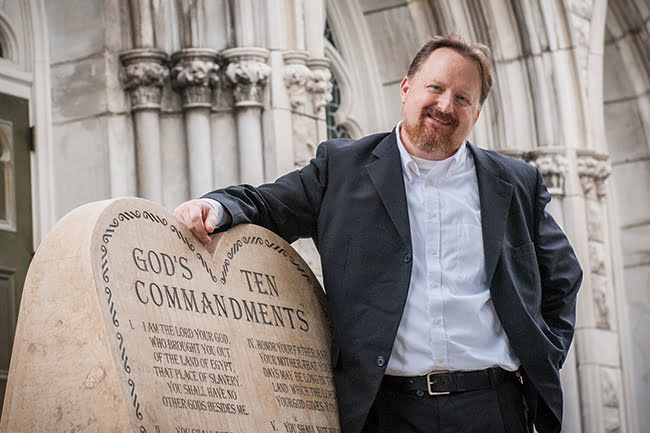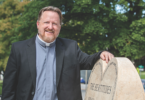by Bill Scholl
The prophet Nathan knew the power of a well-told story to transform.
His king, David, did a very bad thing and he needed to be told in a way he could hear.
Nathan wisely petitioned the king, who loved justice, with the case of a poor man with only one lamb who was robbed of his sheep by a rich man with many livestock.
Outraged, the king said this rich man must die and make fourfold restitution.
Nathan taught toward transformation with the words: “You are that man!” (2 Sm 12:7). Placing ourselves in the story has the power to transform.
Recently, I spoke at Benedictine College to an auditorium of students on the subject of immigration reform. We did an abridged form of an exercise I developed called “Solidarity and the Shipwreck.”
I invited 10 students to come up and stand close together. I then encircled the ground around their feet with a rope with room for all inside. Next, I asked seven to step outside the circle.
The group within the circle were passengers on a cruise that came upon a massive shipwreck. The group outside the circle became the drowning sailors, trying to prevent death by getting onboard.
Because the passengers had paid a lot of money for the trip, the captain let them decide whether to save the sailors. I then asked the students playing passengers what they decided. These students unanimously agreed to let all those drowning to board.
As Americans, we are the ship, and desperate immigrants are the drowning sailors. And this is a story that can open our hearts to the Catholic Church’s teaching on immigration.
The church teaches that, since all humans are created in the image of God, everyone has a right to pursue things required for basic human survival (food, clothing, shelter) within their own country.
However, when someone cannot acquire those things needed in his home country, for reasons of a depressed economy or a fear of persecution, then that person has a right to immigrate.
The Catholic Church upholds the rights of sovereign nations to secure their borders, but insists this right is not absolute.
Nations, particularly wealthy nations, have a moral obligation to accommodate immigrants in dire circumstances in ways that still maintain the common good of their own country.
Just as the captain of a ship coming upon the wreckage of a vessel much larger than his would have an obligation to take on as many survivors as he could, but not so many that his own ship would sink, so also should nations look upon preserving the rights of immigrants.
The U.S. bishops encourage U.S. officials and all Catholics to look at the immigration issue in humanitarian terms.



